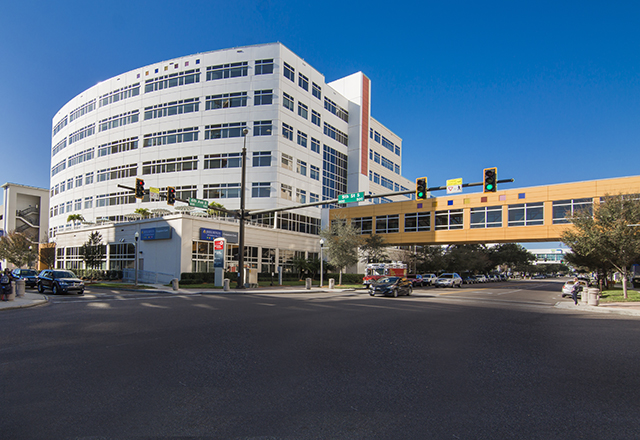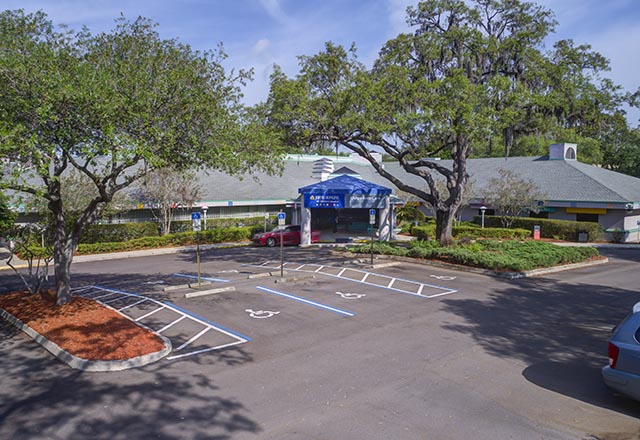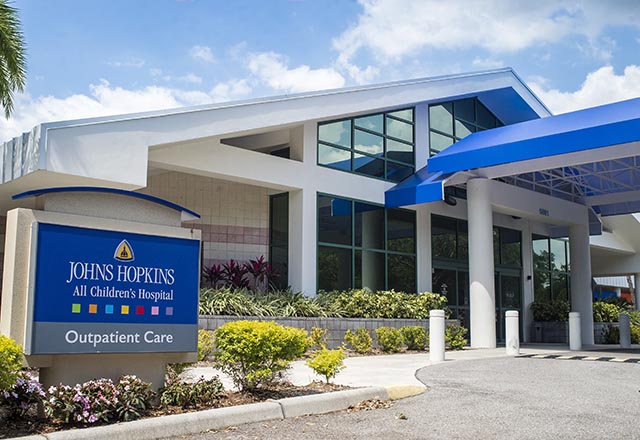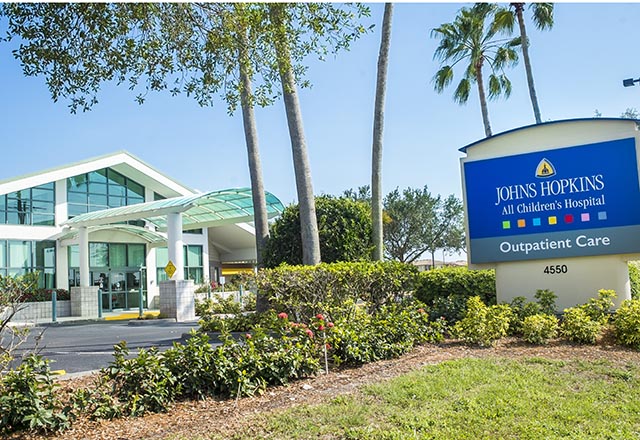Craniofacial Clinic
The shape of an infant’s head is a common concern of families. Parents who notice a flat spot may have anxiety about what it means for their child. They should discuss the issue with their pediatrician because early diagnosis preserves more treatment options.
Many times, a child may only have positional plagiocephaly, or flat head. This will likely get better on its own and repositioning can help. If it does not resolve, helmet therapy may be an option for some families. Our specialists also have expertise with another, rarer, condition known as craniosynostosis, which occurs when the plates in the skull fuse together abnormally and will require surgery to correct.
Our clinic, which is available at four Johns Hopkins All Children's Outpatient Care locations, brings together specialists from neurosurgery, plastic surgery, physical therapy and orthotics to develop a comprehensive plan for your child, which may include surgical or non-surgical treatment options.
During Your Child’s Appointment
A neurosurgeon will screen for conditions that may impact the shape of the head and discuss treatment options.
A physical therapist will check for torticollis and other neuromuscular disorders that can cause the skull to form incorrectly. They can arrange therapy, if needed.
If your child is a good candidate for treating plagiocephaly with a helmet, an orthotist will provide an additional evaluation. You’ll have the opportunity to learn more about helmet therapy and, in many cases, your child can be fitted for a helmet that day.
What to Expect
For patients with craniosynostosis, our surgery team offers the latest in minimally invasive and open reconstructive techniques. Pediatric anesthesiologists that specialize in craniofacial surgery also will be on the team that cares for your child.
Minimally invasive surgery may be an option for infants 3-4 months of age. It has a smaller impact on children than traditional techniques. The incision is smaller, resulting in a shorter operating time, lower need for a blood transfusion and a shorter hospital stay. After surgery, a child may stay in the intensive care unit overnight and be able to go home the next day.
Our craniosynostosis neurosurgeon will partner with a craniofacial plastic surgeon for a team approach during large-scale reconstructions. These procedures usually require a longer recovery time.
Contact Us
For more information or to make an appointment please give us a call at the phone number below. We serve families in the Tampa Bay area and beyond.
Give us a call
Request an appointment
Click here to request an appointment by selecting "neurosurgery," and a member of our team will contact you.

Our Locations
-
Outpatient Care Center
Johns Hopkins All Children's Hospital 601 5th Street South, St. Petersburg, FL 33701

-
Johns Hopkins All Children's Outpatient Care
Tampa 12220 Bruce B Downs Blvd., Tampa, FL 33612

-
Johns Hopkins All Children's Outpatient Care
Sarasota 5881 Rand Blvd., Sarasota, FL 34238

-
Johns Hopkins All Children's Outpatient Care
Fort Myers 4550 Colonial Blvd, Ft. Myers, FL 33966


